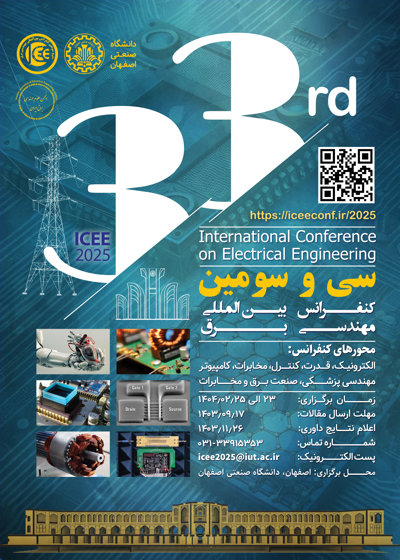0% Complete

نویسندگان :
کلمات کلیدی :
چکیده :
لیست مقالات بایگانی شده
Reza Behkam - Hossein Karami - Mahdi Salay Naderi - Gevork Gharehpetian
Ali Tamizifar - Shakiba Berenjkoub - Mina Amiri
Amirreza Jodeiry - Zahra Kavehvash
Seyed Sina Mousavi-Seyedi - Mohammad Reza Rezaei - Mohammad Reza Miveh
Mohadeseh Atyabi - Fardin Ayar - Mahdi Javanmardi
Mohammad Bod - Seyed mohammad Hashemi
Mohammad Roueinfar - Mahdi Salmanian
Mohammad Hasan Nikkhah - Mahdi Samadi
Mohammad Yousef Darmani - Shiva Karimi
Farzaneh Karimi - Mohsen Mojiri





